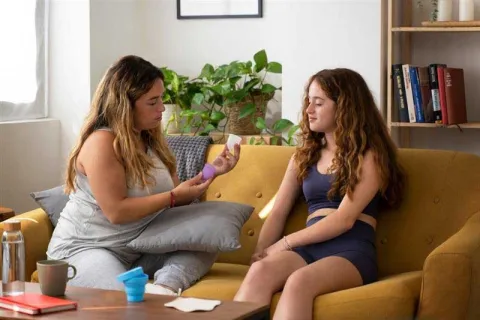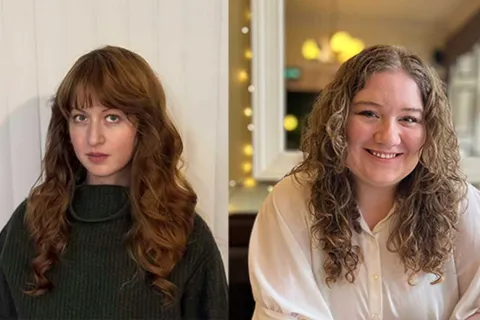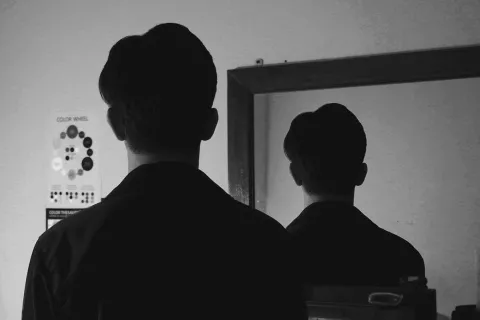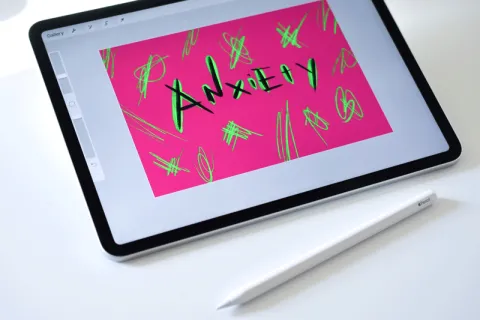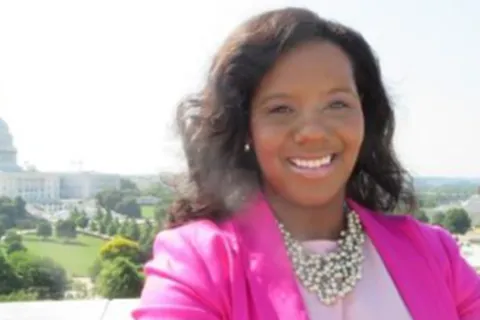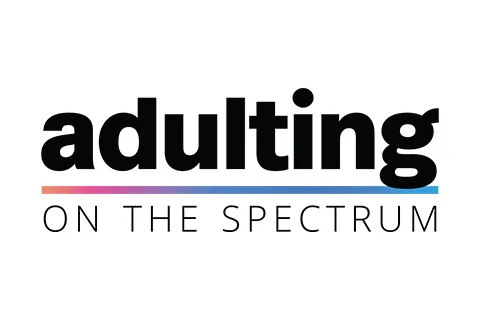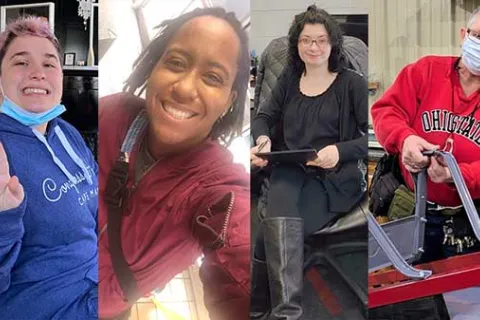Dr. Levin shares experience with masking
By Marta ChmielowiczDr. Elisheva Levin, Ph.D., was 45 when she received her autism diagnosis. After a lifetime of struggling to fit in, she discovered her son has autism—and the pieces finally clicked. Her diagnosis gave her a deeper understanding of herself and a new perspective on the challenges she faced throughout her life.
Now, Elisheva devotes her career to disability policy to make sure that autistic people are equal partners in the research and policymaking process. She completed her Ph.D. in special education and works as a senior research scientist at the Center for Development and Disability in the University of New Mexico School of Medicine. In her work, she is hoping to use data to drive research that benefits people with autism and other developmental disabilities and makes them feel more accepted in society.
In this Q&A, Elisheva reflects on the challenges faced by autistic women across the lifespan and shares her own experiences with masking and diagnosis.
Can you talk about your experience growing up not knowing you were autistic?
I spent a lot of my time as a young girl daydreaming. I was terribly bored in school because I didn’t understand why I was there when there were so many other things I would rather be doing. It was especially difficult as I got old enough to understand that I was different in some way from all of the other girls. Instead of acting out like a boy might, my way of dealing with it was getting into fantasy and science fiction. I spent my young teenagerhood imagining that I was in those worlds and not in the world that I was in, because the world I was in was so painful.
When I went to college, I didn’t understand what college was about or what you were supposed to be doing when you were there. I had no idea you went to college to get a degree. I was just having fun taking classes. That’s just a small example of the kind of misunderstandings autistic people have sometimes. There’s all this information or knowledge out there that the neurotypical world just seems to know. Then you come along and you work really hard to fit in, but it takes so much energy. And it already takes a lot of energy for an autistic person to interact with the world, because all the things that don’t bother you bother me. When I’m at my office, I have to put up a cloth over the light to make the light different. I need a certain amount of quiet. All that spent energy keeps you from doing so many of the things you could be doing in the world.
How did you feel when you ultimately got your diagnosis?
I was actually relieved. All of a sudden, I could understand my life and my problems in a very different way, because I understood that my brain works differently. I think it’s interesting because I work with autistic young adult women and almost all of them say the same thing when they receive their diagnosis, though they’re much younger than I was. I wonder how much time I could have reclaimed if I had known.
But then there’s the issue of who to tell, who to disclose to and who not to disclose to, because there’s still a stigma on disability. I actually disclosed a lot more than I might have if I had thought about it longer, because I wanted to be seen for who I was. And I was shocked when suddenly, people I worked with treated me like I’d lost about 50 IQ points. All of a sudden, I was fragile. I learned that maybe everybody doesn’t need to know this piece of information.
What do you think are the biggest unmet needs for autistic women?
First of all, we have to make sure that people recognize that autism does not look the same for men and women. We’ve said for a long time that if you’ve met a person with autism, you’ve met a person with autism. Women with autism are going to present differently than men as a group, and we also all have our individual differences.
Secondly, women with autism struggle so much with the psychological problems that come from feeling unheard and not knowing how to behave around others. Experts have claimed for a long time that autistic people are more prone to anxiety and depression, and that it’s somehow caused by our brains. But the fact is that the world looks a lot different from the perspective of women with autism than other people. If you don’t fit in, it makes sense that you’re going to be more anxious and depressed because being social takes so much of your energy that you don’t get to live your life.
The other problem is women and girls are often diagnosed much later than boys. I was diagnosed simply because my son has autism and I realized that I never thought there was anything wrong with him. I thought that it’s perfectly ok to want everything lined up by color or to be bothered by the color blue at Walmart. I think the gap in diagnosis comes down to the fact that girls mask better. We’re trying so hard just to manage and not look incompetent. In our society, women are often seen to be less capable—whether they’re on the spectrum or not. Add to it that autistic women have a different way of interacting with the world, and you set us up to constantly feel like we should be doing more.
So, the biggest need for women with autism is to learn that it’s ok to be different, and for the world to learn that we can have different flavors of people—that everybody doesn’t have to act exactly the same way. We need to change the world a little so that autistic women can shine with our particular talents and ways of doing things.
Is there any advice you would give to women who are going through the same thing?
I would say to women that if you are feeling like you don’t fit in and you’re already past adolescence, start looking for why. It takes a long time to get a diagnosis, especially for adults, simply because there aren’t enough providers offering adult diagnosis.
The other thing I would say to women who were diagnosed later is to take care of your health. You’re going to mask, it’s going to happen, because you’re not always going to want to announce that you’re autistic. Make room for what you need and embrace your differences. If you’re constantly being treated like an outside, you start feeling like you have to work really hard to be like everyone else. Don’t buy that line and you’ll be a lot happier.
Why did you choose to pursue a career in disability policy?
We have all these policymakers and researchers today who are telling us that they’re going to fix things for us. But a lot of the people who are leading the conversation do not have autism or other developmental disabilities. Why is it that people with disabilities are not employed with these organizations? Why is it that we have neurotypical people telling us that they can manage our lives better than we can? What’s going on that we are token in what should be our own community? Asking these questions is how I got into this work.
Researchers used to think of people like me as “subjects” to be experimented with. We need to turn that around and look at the people who are participating in research as stakeholders in the research process. It’s essential that there should be nothing about us without us.
Learn more:


